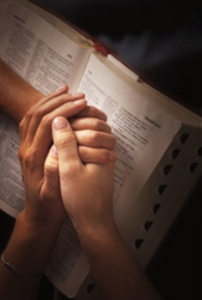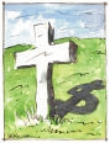Justice Scalia of the U. S. Supreme Court makes occasional headlines both as a writer of conservative judicial opinions and as a public speaker. Since his nomination by Ronald Reagan and subsequent elevation to the bench in 1986 Scalia has been a dependable conservative voice in the court. In a recent speech before a conservative religious group, Scalia decried the court’s recent moves toward European style secularism.
The American tradition of relations between religious groups and the government is unique, Scalia argued. The government should not move to establish or prefer any religion, but this neutral stance does not necessitate that the court mandate a public square free from religious expression. There is no bias in the U. S. constitution in favor of “nonreligion.”
By themselves Scalia’s comments would not stir much debate. They are consistent with other public remarks that he has made in the past, and opinions he has rendered. However, public comments by Justices of the highest court in the land during a Presidential election year are sure to draw attention, especially when both major candidates are suggesting that the next President may appoint as many as three new Supreme Court Justices.
This also comes as the court prepares to hear a controversial case on the public display of religious monuments on civic property. This Fall the nine Justices will hear arguments from Pleasant Grove City, Utah and followers of the Summum religion regarding the religious group’s desire to place a monument with the “Seven Aphorisms of Summum” beside an older monument of “The Ten Commandments.” Lawyers for Summum argue that their clients have as much right to express their religious views in the form of a monument in a public forum as do those who donated the older monument. Lawyers from the city fear that a ruling in favor of the Summum would mean that public officials would be left with two unacceptable options. One, accept and install all monuments donated by private religious organizations. Two, remove all monuments, including religiously themed war memorials, from public grounds.
Anticipating a ruling in favor of the Summum, Fred Phelps and his Westboro Baptist Church are preparing to donate and install a monument in Casper, Wyoming celebrating the death and damnation of Mathew Shepherd, a young gay man beaten to death in 1998. Town leaders in Casper filed an amicus brief supporting Pleasant Grove City and hope to avoid the spectacle and violence that the installation of this kind of monument might cause. Other municipalities are eagerly anticipating the court’s ruling.
Read The Christian Science Monitor’s article on the Pleasant Grove City case.
Read more on Scalia from World Wide Religion News.



